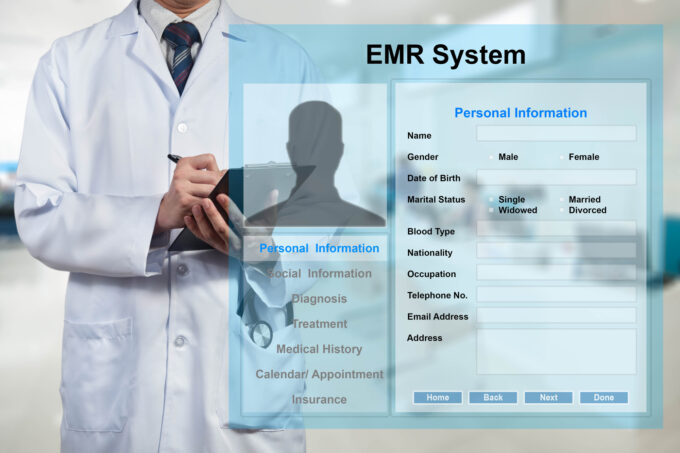Digital medical record to become mandatory
The electronic patient dossier is to become a pillar in the healthcare system. This is what the Federal Council has decided and sent a corresponding revision of the Federal Law on the E-Patient Dossier into the consultation process.

According to the Federal Council, the electronic patient dossier (EPD, cf. also here) is an important tool in healthcare. All treatment-relevant information can be stored in it and can be retrieved at any time, according to the report. This can significantly increase the quality and safety of medical treatment.
In August 2021, the Federal Council decided to promote the dissemination and use of the EPD with various measures and to revise the Electronic Patient Dossier Act (EPDG) for this purpose. In order to increase the benefits for the population and the healthcare system, the Federal Council is proposing a comprehensive revision of the Federal Electronic Patient Dossier Act (EPDG). The simpler and more secure health data is available, the better: this would give patients an overview of their medical data at all times - from laboratory values to surgery reports to medication prescriptions.
EPD also in medical practices and pharmacies
Today, all hospitals, birth centers and nursing homes are already obliged to use the EPD and to enter all treatment-relevant information in it. In the future, the EPD will be mandatory along the entire treatment chain and will also include outpatient service providers such as doctors, pharmacists, physiotherapists and chiropractors, according to the Federal Council's communication of June 28. The service providers would have to join an EPD provider and store information on treatments with the relevant data and results in the EPD. As decided by parliament, the storage will be decentralized to the EPD providers certified for this purpose, the so-called "Stammgemeinschaften" or communities. There are currently eight such providers. Accredited certification bodies are responsible for their certification. The cantons must check whether all medical practices, pharmacies and other outpatient service providers are affiliated, the Federal Council writes.
EPD: automatic and free of charge
An EPD should be opened automatically and free of charge for all persons who live in Switzerland and have compulsory health or military insurance. Everyone would then decide for themselves which health professionals would have access to the dossier. The cantons are responsible for ensuring that the population in their cantonal territory receives an EPD. Anyone who did not want a dossier could object to the opening of the EPD with the canton. This opt-out model is intended to expand the dissemination and use of the EPD and to make the EPD a pillar of the healthcare system, as the Federal Council emphasizes.
Clear division of responsibilities
According to the information provided, the revision of the law is also intended to clarify the division of responsibilities between the federal government and the cantons and the financing of the EPD. In the future, the federal government should coordinate and finance the further development of the EPD. The financing of the parent communities is the responsibility of the cantons. They would ensure that at least one parent community was active on their territory.
Strict requirements for data protection and security
Security has top priority for the Federal Council, it says (cf. also here). Data protection and data security must therefore be guaranteed for the EPD. The EPD would already be subject to the highest security standards today, which could also be legally enforced thanks to their anchoring in the law. The EPD providers would have to meet strict legal requirements in technical and organizational matters and also guarantee security in use by EPD users. Strict data protection and data security would remain guaranteed with the revision of the law.
Making the data usable for research
The medical data stored in the EPD are in principle of interest to researchers. The revision of the law is intended to create the possibility for EPD holders to make the non-anonymized medical data in their EPD available for research purposes with their express consent.
The Consultation on the draft revision runs until October 19, 2023.
FMH: EPD must be improved
The FMH doctors' association, for example, is not very happy with the current form of the electronic patient dossier (EPD). In principle, the association is not against digitization in healthcare. But the planned electronic patient dossier is far too complicated and impractical to use, FMH President Yvonne Gilli told Swiss television SRF, for example. Doctors would have to spend too much time in front of the computer, Gilli criticized. She opposes an additional administrative burden for health professionals. Before further expanding the electronic patient dossier, the product must first be improved, she told SRF.
The FMH president is also bothered by the fact that the federal government wants to oblige all healthcare professionals - from doctors to pharmacists to physiotherapists - to keep such electronic dossiers in the future.









